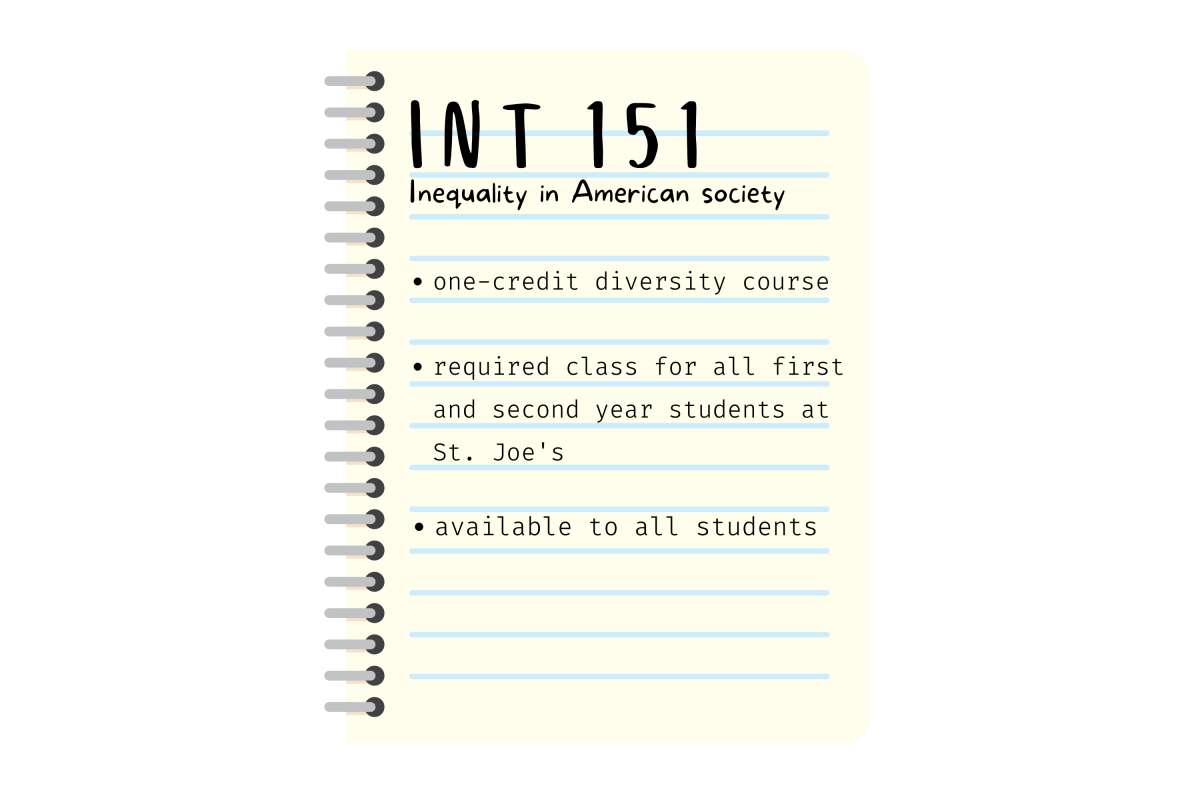A mandate that would require all incoming St. Joe’s students to take a one-credit diversity course, Inequality in American Society (INT 151), within their first two years at the university was approved by Faculty Senate on Oct. 28.
INT 151 originally passed through Faculty Senate as a pilot course in 2020 and was required for all first-year students in spring 2021. The pilot period was extended in fall 2021, and the course was open to students of all years in spring 2022.
A series of racist incidents on campus, including a racial slur written on the felt letter board on a Black student’s dorm room door in fall 2018, prompted discussions about racism on campus.
Several faculty including Brian Yates, Ph.D., associate professor of history, Susan Clampet-Lundquist, Ph.D., professor of sociology, Becki P. Scola, Ph.D., professor and chair of the political science department, Ron DuFresne, Ph.D., professor of management, Eric Patton, Ph.D., associate professor of management, and Aisha D. Lockridge, Ph.D., associate professor of communication and media studies, were involved in advocating for the course. Yates said the course focuses on anti-racism and inequality and is designed to give students the tools to talk about race in the classroom and beyond.
“It’s just simply a course designed to give students a vocabulary to be able to discuss comfortably, and in a clear manner, why this country is so unequal,” Yates said. “You can give the students possible practices to actively work against inequality.”
Now that the course has passed through Faculty Senate, it will be sent to University Council as the next step in adding it as an official course requirement for incoming students. If approved, INT 151 could be a requirement as early as fall 2023.
While juniors and seniors are able to take the class, INT 151 is intended to reach first- and second-year students, said Lockridge.
“We wanted a class that happened earlier in a student’s career while they’re still forming their own opinions,” Lockridge said. “They begin to have more of their own opinions about big things. We want to get in there early.”
The faculty vote to pass the resolution to approve INT 151 was not unanimous. Many faculty voted in favor, but some said that the course was not needed, while others argued that INT 151 was not the correct approach to talk about inequality in America.
“The faculty blowback is the idea that the only people that need to hear about racism are the victims of it, as opposed to people who are participating in structural racism, and I think that will be all of us,” Yates said.
Sam Broaddus ’26, who is currently taking the class, said INT 151 has changed the way he looks at race and its role in American history.
“It just changed my perspective on how power impacts race and race impacts power, and how power structures are set up to preserve the system of white supremacy,” Broaddus said.
One of the foundational ideas of a Jesuit institution is social justice, and “social justice in the United States can’t keep excluding race,” Lockridge said.
“I think it’s important to be clear that racism happens on this campus,” Lockridge said. “It’s not a yes or no, it’s not a black or white, and I think a lot of people who don’t work with anti-racism work don’t recognize that.”













































